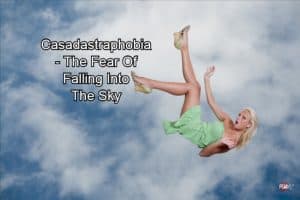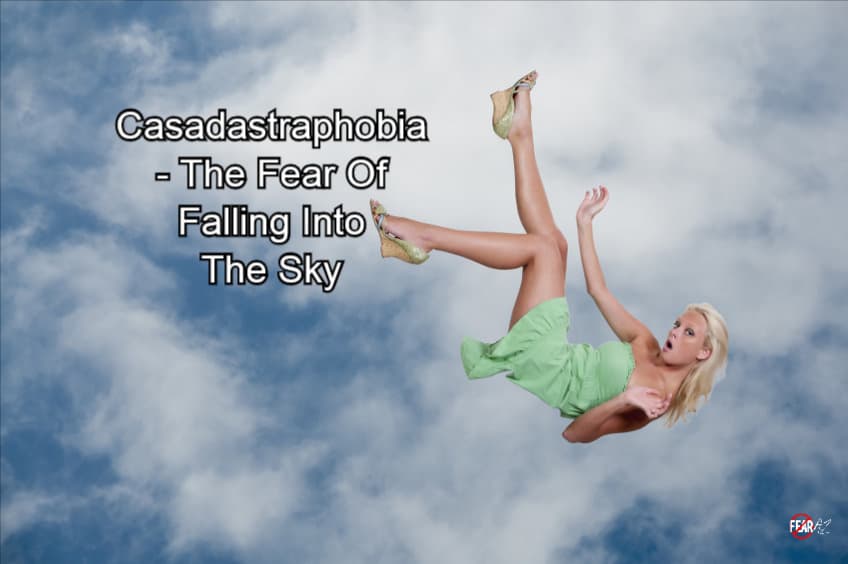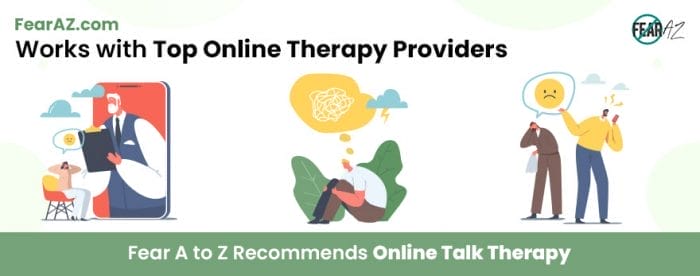Share This Article
The Fear of Falling into the Sky
Do you sometimes hyperventilate or become anxious because you feel like your body is losing gravity?
Or do you sometimes feel like you may fall upward—as if gravity has ceased working for you alone?
What you may be experiencing is a rare phobia called casadastraphobia. Casadastraphobia, or the fear of falling into the sky, is less common than other types of fears, but it is a valid phobia.
Why am I afraid of falling into the sky? Read on for some helpful information.
If you’re struggling to cope with the fear of falling into the sky, there are some steps you can take to overcome or manage your fear. The first step is to understand how the fear developed within you. Once you’re able to pinpoint its origin, it may be easier for you to find a solution.
Some Common Casadastraphobia Causes
Like any other type of fear or phobia, casadastraphobia doesn’t generally have a specific cause.

Some scientific studies suggest that the cause of this fear may be genetic. Having a family member suffering with this phobia, especially directly related members, may transfer it to their offspring. Some also believe environment plays a crucial role in the development of phobias.
Some traumatic past experience involving the sky can also cause this fear. Casadastraphobia can also arise from another mental illness, like generalized anxiety disorder (GAD) or obsessive compulsive disorder (OCD). People with OCD and GAD are more likely to develop this phobia.
Everything You Need to Know about Casadastraphobia
Casasdastraphobia is a fantasy phobia. This means there is a low probability of the dreaded event ever occurring. The onset of the phobia involves imaginative thinking. It is common for those struggling with this phobia to obsessively think about their fear.
There appears to be a link between this fear and vertigo. This suggests that dizziness may trigger the fear.
Casadastraphobia is a new concept of irrational fear that has not yet made its way into mainstream medicine.
Listed Casadastraphobia Symptoms
Just like any other phobia, casadastraphobia has no particular symptom that helps distinguish it from other phobias. The good news is that those suffering from this phobia can lead healthy, normal lives. Being aware of the symptoms will help you get diagnosed and treated as early as possible before things worsen.
Casadastraphobia can cause the following physical symptoms:
- Hot flushes
- Shortness of breath
- A choking sensation
- Rapid heartbeat
- Numbness in body
- Dry mouth
- Hyperventilation
- Tightness in chest
- Nausea
- A feeling of faintness
Casadastraphobia can cause the following psychological symptoms:
- Fear of losing control
- Feeling of dread
- Fear of dying
- Fear of harm
- Withdrawing from others
- Feeling disconnected
- Confusion, difficulty concentrating
- Irritability and mood swings
- Anxiety and fear
Those with casadastraphobia may also feel unable to go to places with high altitudes, or in extreme cases, even be on open ground.
Based on the severity of the phobia, it’s possible one may exhibit some or all of the symptoms above.
When Should One Seek Treatment for Casadastraphobia?
Despite having this fear, many people who have mild symptoms can lead a healthy life. If, however, your symptoms get worse and you’re unable to cope with the fear, seek professional help.
Seek treatment if:
- You are not able to lead a normal life due to this phobia
- Your symptoms are getting worse every day
- You are struggling to cope with your phobia
- You have difficulty socializing
- You are experiencing frequent panic attacks
Casadastraphobia Treatment Options
Since this fear has only been recognized recently, it’s hard to determine how many people are affected by it. However, certain phobias like this can be impossible to avoid or cope with. You may want to consult an expert for guidance and advice regarding treatment options.
Even though most phobias are treatable, there is no single treatment that will work for everyone. In some cases, a combination of several treatments will be recommended.
How Treatment Can Help You
- Identify unhelpful patterns when you are exposed to this phobia
- Understand yourself better and make sense of what’s going on
- Provide a safe environment where you can talk about your phobias without judgment
Self-Help
No one can help you better than yourself, and that is true here as well. You know what your symptoms are and what you feel. You are your first line of defense.
Try to convince yourself that your fear is irrational and the chances of it happening are almost zero. Reassuring yourself this way will help you feel more comfortable talking about or thinking about your fear.
By sharing your situation and fear with your loved ones, you can get a fresh perspective from others. Perhaps they can offer ideas on how to deal with the situation more effectively.
Meditation
Meditation is an effective way to calm yourself and learn to better handle situations, not only during feelings of panic but also in daily life. By practicing meditation, you will also learn how to manage your feelings and not dwell on your fears. When you feel fear stemming from a past event, meditation will help you live more in the present rather than getting caught up in the past.
Additional Self-Help Tips
- Learn how to cope with panic and anxiety
- Join a support group
- Get enough sleep
- Eat healthy
- Avoid or reduce caffeine and other stimulants
Professional Treatment
Exposure Therapy
Exposure therapy involves gradually exposing yourself to your fear over time. This gradual exposure may eventually make you comfortable in the presence of the object of your fear and reduce your anxiety.
Cognitive Therapy
Cognitive therapy is based on the idea that how we perceive something has a direct effect on how we feel about it. If you can learn to think about the object of your fear differently, you will be able to cope with it better.
Learning to Cope with Casadastraphobia
If you’ve ever given up on something that meant a lot to you because you were afraid, you probably understand the importance of “doing it regardless.” Heights, snakes, and spiders are all terrifying. Even so, this doesn’t imply you should never fly, hike, or wander into the woods again. Allow yourself to be anxious, and then do your best to go on.
Yes, phobias are irritating, especially when they limit one’s freedom. Why not work to get yours under control as soon as possible, so you can get back to living life to the fullest.




